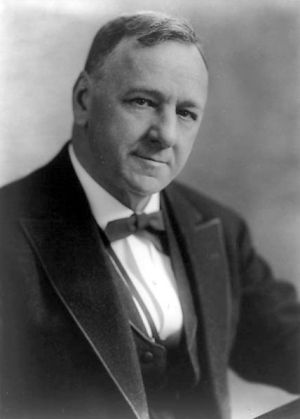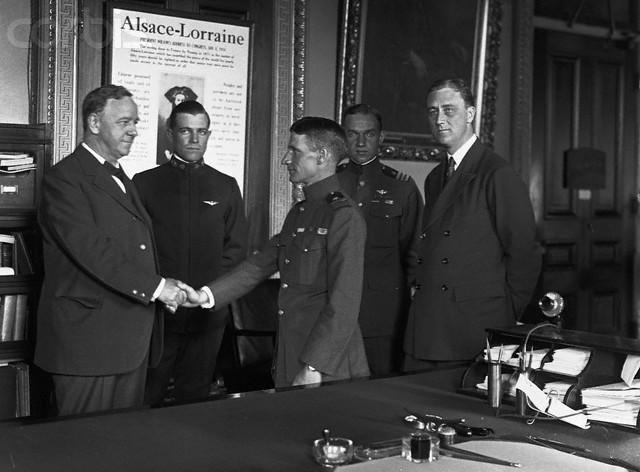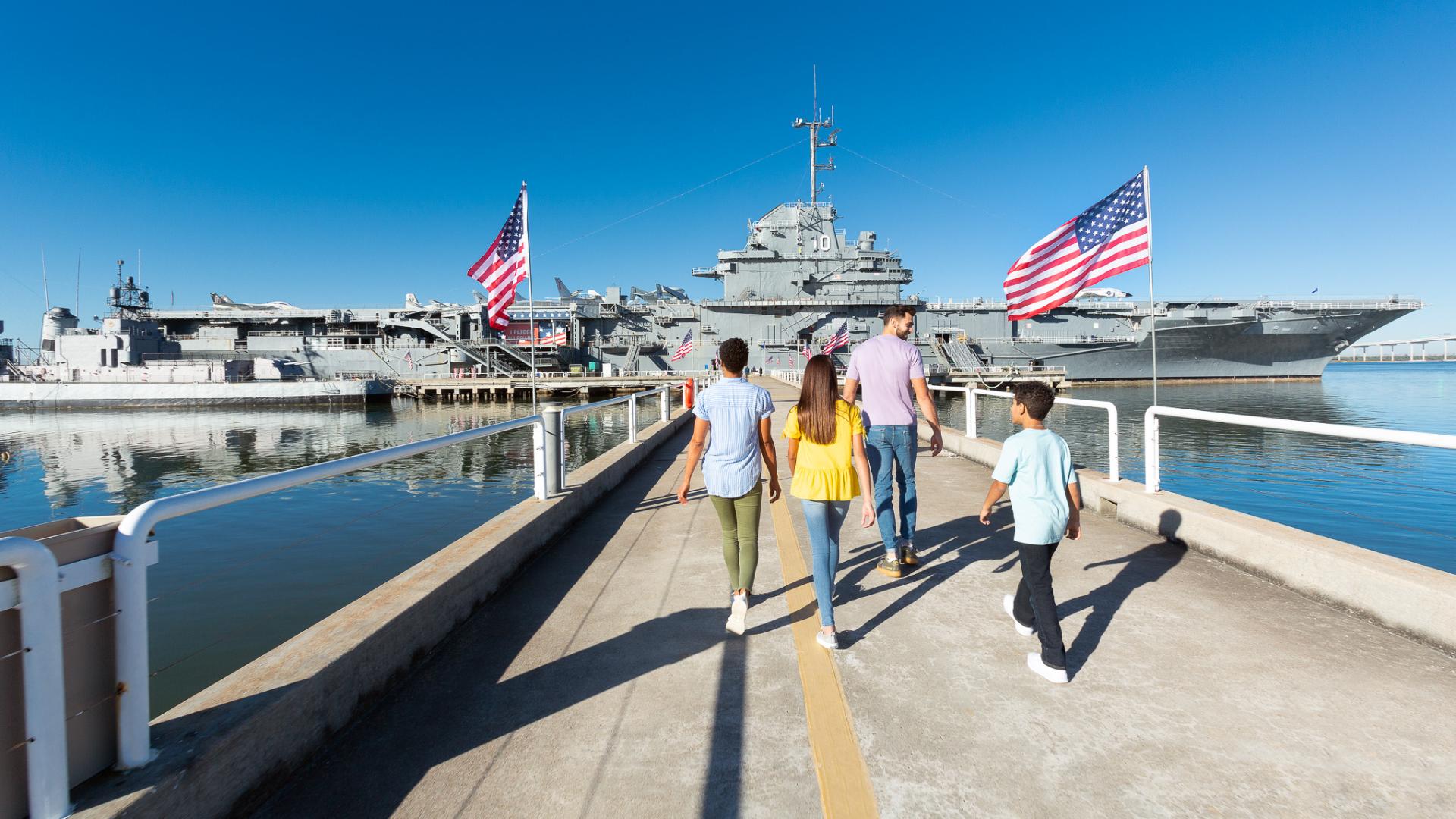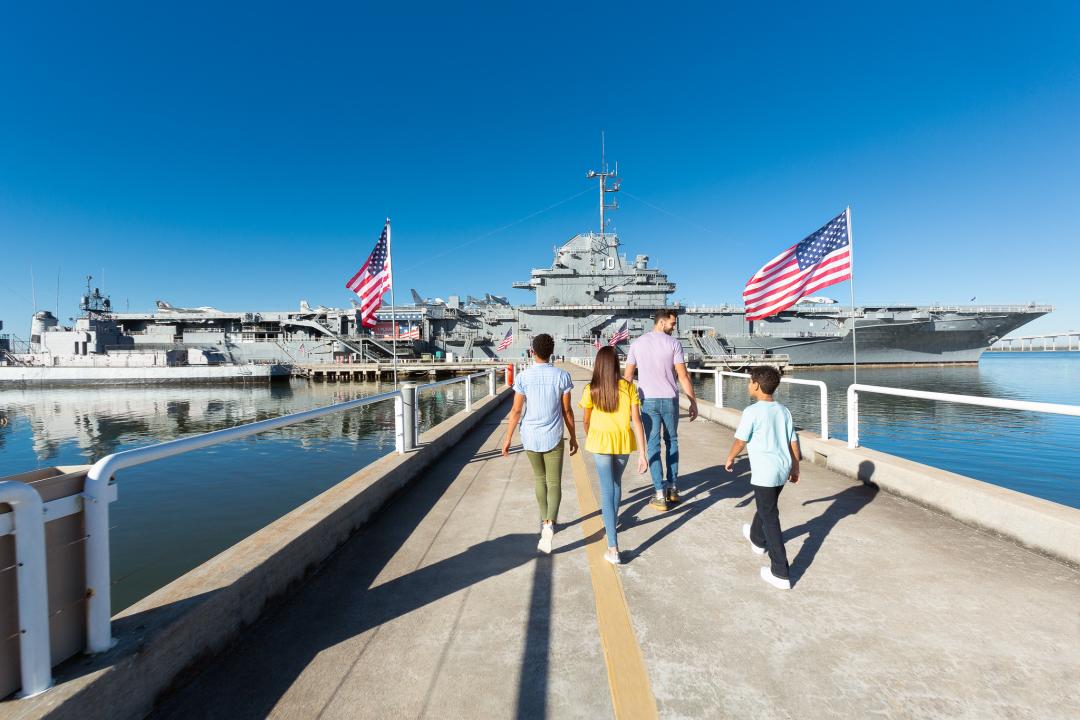[caption id="" align="aligncenter" width="300" caption="Secretary of the Navy Josephus Daniels touring the Brooklyn Naval Yard with inventor Thomas Edison, 10 October 1914 (© Bettmann/CORBIS)."]
Josephus Daniels, Secretary of the Navy (1911-1919)
On 10 January 1914, Secretary of the Navy Josephus Daniels announced that "the science of aerial navigation has reached that point where aircraft must form a large part of our naval force for offensive and defensive operations." Hard to believe that statement would come from a battleship strong United States Navy, but Josephus Daniels was no regular Navy officer and he was keen on innovation, particularly aviation, electricity and radio.
 [/caption]
[/caption]
He was the founder and editor of the Raleigh News and Observer in Raleigh, North Carolina, and had little previous experience with the Navy. As a supporter of Woodrow Wilson in 1911, Daniels was appointed the new president's Secretary of the Navy. As his assistant secretary, Daniels selected an aristocratic young New York politician named Franklin D. Roosevelt.

Daniels did have some set beliefs about how American institutions should be run. Besides his notions on naval aviation, he stirred up the naval officer corps by trying to abolish some of their traditional privileges and instituting more humane and democratic treatment of enlisted men. A devout Methodist and a teetotaler, Daniels banned alcohol from naval vessels in General Order 99 of 1 June 1914. From that time on, the strongest drink aboard Navy ships could only be coffee and over the years, a cup of coffee became known as "a cup of Joe". He served as secretary of the Navy until 1921, when the defeat of the Democrats sent him back to North Carolina to his lifelong love, journalism.
Roosevelt and Daniels had had some differences in the Navy Department (Roosevelt tended to sympathize much more with the Navy brass), but they had ended their association in Washington with deep mutual respect. Thus, when Roosevelt became president in 1933, he rewarded Daniels with the ambassadorship to Mexico. This aroused considerable consternation in Mexico, for Daniels had supervised the occupation of Veracruz during the Mexican Revolution in 1914.Among his naval reforms (besides removing alcohol) are the inauguration of making 100 sailors from the Fleet eligible for entrance into the Naval Academy, the introduction of women into the service, and the issue of dog tags to naval personnel.

Josephus Daniels died in Raleigh, North Carolina on 15 January 1948.

